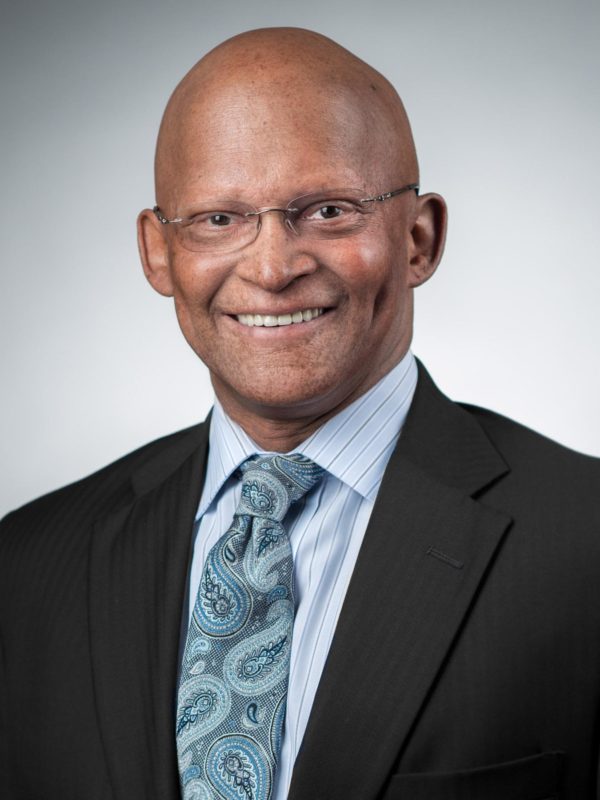Protecting your mental health during the pandemic
Geoff Williams, director of Behavioral Care Outpatient Programs with Prisma Health in the Midlands, explains how to take care of your mental health as the COVID-19 pandemic continues. He offers tips on how to reduce stress caused by social media and family disagreements, as well as challenges such as remote learning, job loss or sickness.
Transcript
Alyne Ellis: Studies show that people are struggling mentally with COVID-19, joining me today to give us some tips on how to lower your stress level is Geoff Williams. Geoff is a licensed professional counselor and the Director of Behavioral Care Outpatient Programs at Prisma Health Midlands. This is Inside Health, a podcast brought to you by Prisma Health. I’m Alyne Ellis. So Geoff, thanks so much for joining me today.
Geoff Williams: Thanks for having me.
Host: So as COVID-19 has gone on for months now, it’s causing so many people to feel really keyed up. What should someone do if they feel anxious or stresses?
Geoff Williams: Oh, that’s a good question. It’s really hard not to feel anxious or stress right now with so many variables in our day to day lives changing. I tend to start guidance on this topic by asking people to do kind of a self assessment. What do you experience that’s causing you stress and anxiety? How do you rate your response to that and what would make it better for you? I also encourage people to evaluate their current relationships because they can increase or decrease stress and anxiety. I’m a big believer in having high quality relationships that I can rely on and trust, and they don’t need to be numerous, but we do need some stability. That’s usually created by healthy relationships and we also need skills to manage what comes our way. That includes some practice of self-management behaviors, setting some limits for yourself, whether it’s with what you eat or what you drink, who you’re around and how long, sleep hygiene, good quality and good hydration. One of my mentors when I was in my counseling training program, taught me when the mind is really stressed, do something that’s good for the body.
Host: So, an example of an evaluation of what might help you or not would be if you find the news is really stressing you out, perhaps your recommendation might be just turn it off.
Geoff Williams: Yes, you need to take breaks and you need to kind of set some limits for yourself when you’re exposed to media of all types that are inundating you with a lot of information, our bodies and minds need time to integrate what we’re learning and what we’re experiencing. So yes, to be blunt, yes. Turn it off.
Host: Would that include also reading posts on Facebook and perhaps things you don’t agree with?
Geoff Williams: Well, exactly. You know, it’s really confusing. The thing was designed to connect us can sometimes exacerbate or increase our anxiety. It can be a great comfort thing, like a social media platform and links us to loved ones and support systems. But then sometimes you’ll see some content that’s crass, or just kind of not aligned with what we believe. And it kind of stirs us up and you have to kind of start managing yourself and try not to get engaged in an argument. First, let’s all agree that we need realistic expectations of a social media platform. The post of content doesn’t define the person who posted it necessarily or their belief system. And so, to use that snapshot, or meme if you were as a defining moment of what that person is or isn’t is really kind of a short sighted way of dealing with it, take intentional breaks and use it with some limits that give you time to recover from what you’re being exposed. Also be self aware of the content that is upsetting you, try and shape your page and the feed. So that that content reaches you less often and try to recognize when you’re binge scrolling or binge watching those types of platforms because they can feed your anxiety and sense of agitation inside.
Host: Well, one of the other problems though, that you have often, or parents often have that you really can’t ignore is this whole issue of kids going to school or staying home and learning virtually if that’s possible, maybe a parent has to stay home, obviously with them. What advice do you have on that whole scenario? Either way?
Geoff Williams: I think we need to have a lot of empathy for families who are going through all of these adjustments and the things that families need to do is try to carve out some structure helps our bodies adjust to the stress that we’re experiencing. We have to kind of decrease our ideal of perfection or accomplishment sometimes. And let’s say sometimes it’s just not that day for the person who was supposed to learn that lesson. And you got to remember that, okay, we’ll just start over, but we can’t get so invested in an outcome that we lose our composure or lose our ability to manage what we’re being faced with. Those are just a couple of things. Families need creative outlets, also healthy behaviors, games, healthy communities through the platform, not just work or school, but family meetings, prayer, if that’s important part of your life, all of those things can be interwoven into some of the other duties and responsibilities that we have.
Host: Well, you know, I think you’re getting into something really important about communication because the other thing that can drive families, I think probably right up the wall is, you know, if you’ve got some family members who want to have huge family get togethers and don’t think this is a big deal and other people who really don’t want to, and they don’t want to come, I’m assuming that maybe the best way to handle that is to just sit down and really try to talk and understand each other.
Geoff Williams: Yeah, that’s a good point. People need to have the right to opt out. I think there can be kind of basic guidelines. It’s one of our programs, we work with adolescents and sometimes adolescents just aren’t in the mood for something. And if they’re just not ready to participate, don’t engage in a power struggle. You might want to set a limit and say, well, you got to say hi to grandma, but you don’t have to stay on there for an hour. You don’t have to, you know, pretend like everything’s hunky Dory. You just set some parameters around that and try to disengage from needless power dynamics in the family. Those meetings can be intimidating, just like family gatherings can be intimidating in person. Not everyone is comfortable, you know, in a room full of 30 people. And we just kind of need to give each other some grace and some room to have an expectation for appropriate and meaningful participation, but not a mandate about how it has to be. We’ve got to be flexible to deal with all the stuff that’s coming at us.
Host: So, what about losing your job? That is just something that’s so life shattering in many ways. What kind of advice do you have for that or even another life shattering one is when a loved one gets this virus, can you give us an exercise or something we could do to help lower stress in these circumstances where it’s just really coming at you and a little conversation isn’t necessarily going to help?
Geoff Williams: Sure. Or it doesn’t only help. You know, I think clear communication and frequent communication is the part of coping. It doesn’t have to be complicated to help, but if you want just an example of an exercise that helps people begin to feel better and decompress, remember that the body’s wired to respond to stressful events. And so when it does, it dumps these hormones in our system like cortisol, it helps us react, but if we’re overly stimulated and overly exposed to these hormones, they start to have a negative effect on us. So if you were to take six breaths and try to hold it for 10 seconds each, and if you could just kind of close your eyes and get centered and take 60 breaths, count slowly to 10 exhale, do it again and do it six times. So if you spend one minute on average doing that, you can decrease the amount of stress hormone in your body from one to three hours. And we know through a lot of science that managing our reaction to stress helps us defend our bodies against disease, emotional stress, and things like that. So that would be an example of something like that.
Host: And then finally, what should we do if we see some serious anxiety or warning signs that a loved one, or we ourselves are really not able to handle this? What’s your recommendation?
Geoff Williams: Great question. Well, you know, the first thing is don’t try to be Superman and manage it all yourself. Everybody needs help right now I do. Everybody does. So we have to begin to recognize what are the signs that I’m not doing well. And we also need to accept feedback if we get it from people who love us or the people we work with that we may have not be doing well. It’s not always some cataclysmic event that alerts us that we’ve decreased in our ability to function and manage stress. It’s often little things like sleep variation and appetite, and our ability be around people. We really need to reach out to the inappropriate resource and that can be for different people, different things. So you start where you feel comfortable, but the open-minded, let’s say you’re very invested in your church and that’s a real support for you, also realize and recognize the limitations of what that church and the resources within that church are able to offer you and be open to accepting help from other avenues. Don’t stigmatize or blame, any type of intervention that has some empirical basis because your parents didn’t do it. Or my culture doesn’t usually do it. We need to open up in short counselors are available and accessible through the virtual platform. And they’re also trained to help on a lot of different levels. I would encourage people to build those support systems and access the resources that are out there to help us during such a time.
Host: Well, these are really tough times, Geoff. I know we’re feeling it, all of us. And so thank you so much for your tips today to handle stress. It was very, very helpful.
Geoff Williams: Thank you for inviting me.
Host: Geoff Williams is a licensed professional counselor and the director of behavioral care outpatient programs with Prisma Health Midlands. For more information on the Coronavirus go to Prismahealth.org/Coronavirus. If you found this podcast helpful, please share it on your social channels and check out the full podcast library for topics of interest to you. This is Inside Health, a podcast brought to you by Prisma Health. I’m Alyne Ellis, stay well and thank you for listening.
Read More
Find a doctor
The best time to schedule a new patient visit is while you’re well. Find a provider who’s right for you by browsing their profiles.
Let Us Help

